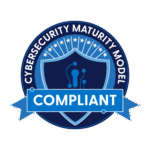Are Your Employees The Weakest Link In Your Security Chain?
Social engineering testing helps businesses protect themselves from cyber threats by identifying vulnerabilities in human behavior. By simulating common tactics like phishing, pretexting, or baiting, businesses can assess how employees respond to deceptive attempts to gain unauthorized access to sensitive information. These tests highlight areas where awareness and training need improvement, enabling organizations to educate staff on recognizing and resisting such attacks. Strengthening employees’ ability to spot social engineering tactics is a crucial defense layer, reducing the risk of successful cyberattacks and safeguarding the organization from potential breaches.
Service Overview
Our Security Awareness Training empowers your employees to recognize and respond to cyber threats like phishing, social engineering, and malware. Through engaging, easy-to-understand content and real-world examples, we help build a security-conscious culture that reduces human risk and strengthens your overall defense. Regular training keeps your team vigilant, informed, and ready to protect your organization’s critical assets.
Uncover Human Vulnerabilities Before Attackers Do
Technology alone can’t stop every threat—employees are often the first line of defense. Our Social Engineering and Phishing Assessment evaluates how your staff responds to simulated phishing emails, pretext phone calls, and other manipulation tactics commonly used by attackers. This helps identify individuals, departments, or processes that are most vulnerable to human-targeted attacks.
Gain Insight Into Real-World Attack Scenarios
We craft realistic, customized phishing campaigns and social engineering attempts that mirror tactics used by today’s cybercriminals. These controlled tests measure how employees react under pressure, whether they report suspicious activity, and how far an attacker could get with just a convincing email or phone call—providing a practical view of your organization’s readiness.
Improve Awareness and Strengthen Security Culture
Our detailed reporting highlights who fell for the simulations, who responded correctly, and where to focus training efforts. We provide tailored recommendations and optional awareness training to close knowledge gaps and build a more resilient workforce. Over time, these exercises not only reduce risk but help foster a security-first mindset across your entire organization.
You can have the best firewalls, the most advanced threat detection, and top-tier security policies—but all it takes is one human mistake to bring it all down.
Social engineering is the art of manipulating people to bypass security controls. It’s how attackers phish credentials, talk their way into buildings, or trick employees into sharing confidential data. And it works—far too often.
At Cyber Defensor, our Social Engineering Assessments are designed to uncover these human vulnerabilities before a real attacker exploits them.
What We Test
Phishing Simulations: Realistic email campaigns to test staff awareness and response
Phone-Based Attacks (Vishing): See if sensitive information can be extracted through voice-based deception
In-Person Social Engineering: On-site attempts to access restricted areas or hardware using impersonation techniques
Credential Harvesting: Simulated login portals and credential traps to test vigilance
Awareness & Training Gaps: Identify departments or individuals most at risk
Why You Need a Social Engineering Assessment:
Expose the Human Attack Surface – Understand how real-world attackers exploit employee trust
Prevent Breaches Before They Happen – Many data breaches start with a simple trick—stop it at the source
Strengthen Security Culture – Use real findings to drive targeted training and awareness
Meet Compliance Requirements – Support security awareness components for standards like ISO 27001, PCI-DSS, and NIST
Prove Your Defenses Work – Validate not just your technology, but your people and processes too






